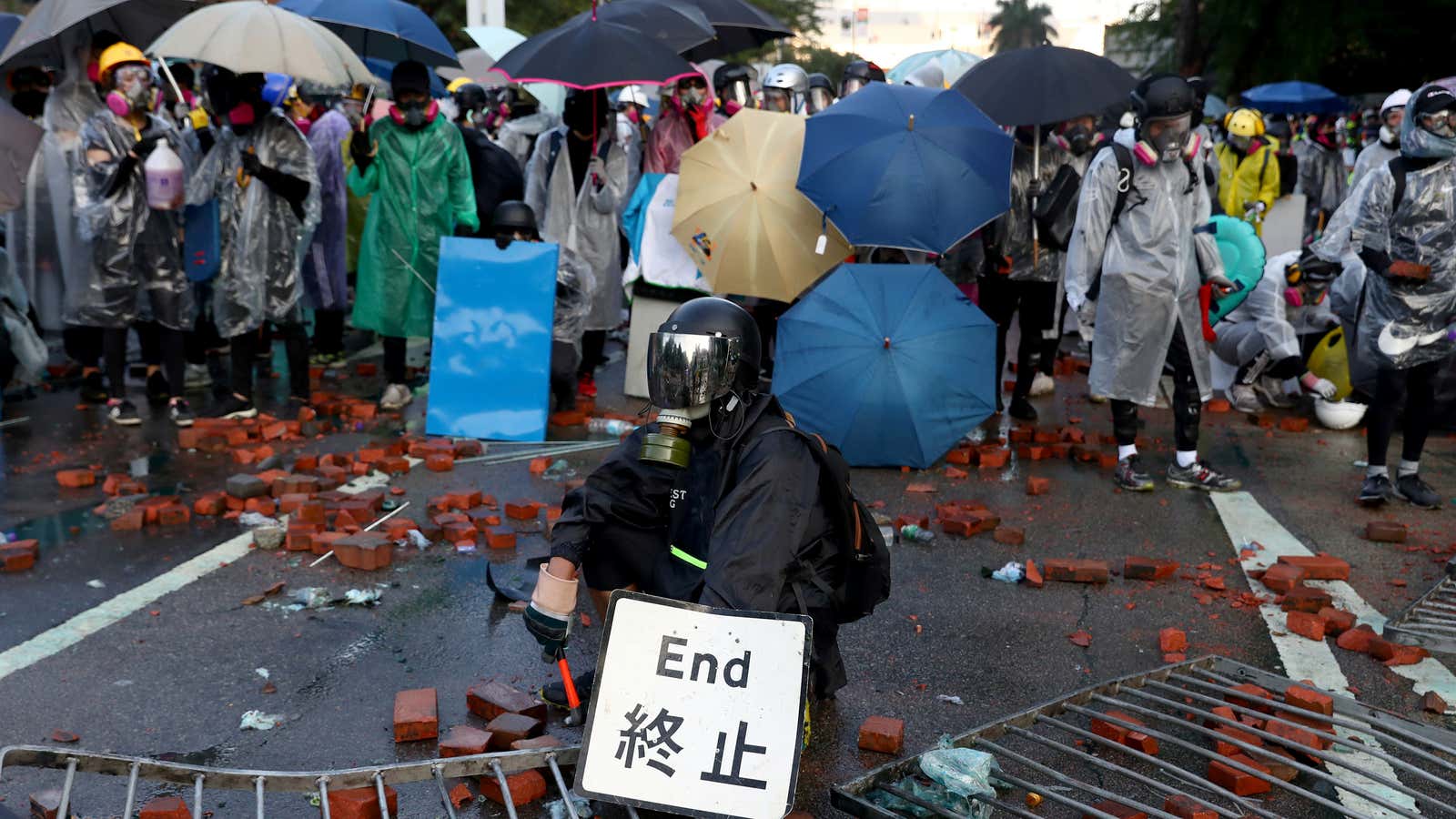Over the weekend, the New York Times published more than 400 pages of leaked Chinese documents that exposed new details about the country’s mass detention of Muslims in Xinjiang.
The internal files were shocking in many ways. They revealed that president Xi Jinping had demanded “absolutely no mercy” in the crackdown on ethnic minorities. They characterized the Communist Party’s campaign in the country’s far western region as “a war of offense.” And the rhetoric used to describe Uyghur minorities was chilling: they had been “infected” by the “virus” of Islamic radicalism, “unhealthy thoughts” from which they must be cured.
“No matter what age, anyone who has been infected by religious extremism must undergo study,” one of the documents read. Using this justification, officials in China have been forcing Muslim minorities to undergo “re-education” in camps from which they are not free to leave—researchers estimate one million people have experienced such detention since the drive started in around 2016.
The metaphor of sickness is one that Hong Kong police have begun using to describe protesters in the city, too.
At a press conference last Thursday (Nov. 14), police spokesman John Tse condemned the recent violence that had erupted across local university campuses, decrying the “riotous” and “violent” acts carried out by protesters who had fortified their schools in an attempt to prevent riot police from storming in. Then he used language that echoed words that appear in the leaked files detailing state policy in Xinjiang.
“This alarming trend,” said Tse, “has spread like cancer cells to other universities in Hong Kong like the Hong Kong Polytechnic University and Hong Kong Baptist University.” He added that the past months of protests had made Hong Kong so weak (link in Chinese) that its pulse was now barely perceptible.
It’s not the first time the police have used dehumanizing language to describe protesters. Officer routinely call protesters, bystanders, and journalists alike “cockroaches.” Protesters, in return, call cops “dogs.” Yet the close parallels between the rhetoric of the Hong Kong police in describing protests and the Chinese state in describing the crackdown on Uyghur Muslims speak directly to protesters’ fears that Hong Kong could become the next Xinjiang.
Though Hong Kong is far removed from Xinjiang, protesters in the city have invoked the western Chinese province’s surveillance state, where technological scrutiny accompanied the build-up of the detention program, as a key reason for why they have to be vigilant and continue their campaign of resistance against the government. Many protesters have been careful to cover their digital tracks, using cash to buy train and bus tickets, embracing encrypted messaging apps like Telegram, and beefing up digital privacy settings.
“Who knows if [Hong Kong] would become like Xinjiang the day after tomorrow, because things can change so quickly,” one protester told AFP.
Across the city, protest graffiti also regularly allude to Xinjiang, at times naming specific Uyghur intellectuals detained in China.
And a protester-produced video explaining the alleged surveillance threats posed by the Hong Kong government’s roll-out of new “smart” lampposts directly referred to Xinjiang.
